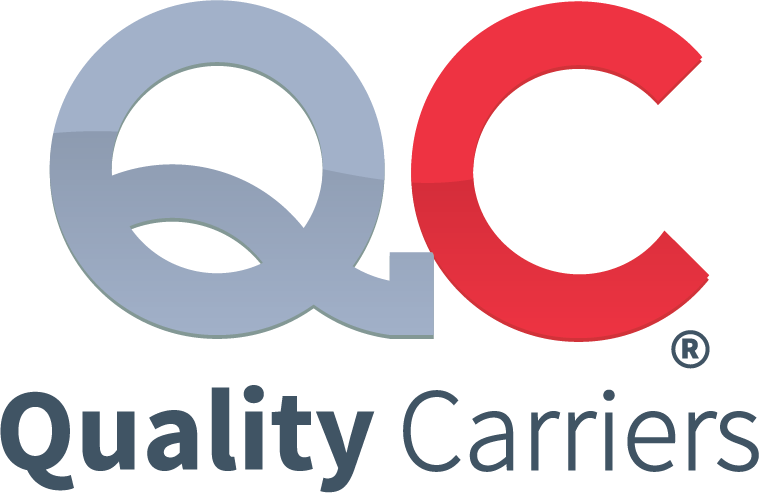Transporting chemicals safely is a top priority for industries worldwide. With the inherent risks involved, ensuring these hazardous materials’ secure and efficient delivery is crucial. Technological advancements have revolutionized the transportation industry in recent years, with GPS tracking emerging as a valuable tool for enhancing safety and security during chemical transport. In this blog post, we’ll explore the numerous benefits of using GPS tracking systems in chemical transportation and how they contribute to greater peace of mind for transporters and recipients.
What Is a GPS Tracker?
A GPS tracker, or Global Positioning System tracker, utilizes satellite signals to precisely determine the real-time location of an object, individual, or vehicle. This works by receiving signals from a network of satellites and then calculating the device’s position based on the time it takes to reach the receiver. GPS trackers are commonly used for various purposes, including vehicle tracking, asset monitoring, personal safety, and fleet management. They provide valuable insights into tracked entities’ location, movement, and behavior, enabling efficient management, enhanced security, and improved decision-making.

The Benefits Of Using GPS Tracking For Chemical Industry
1. Monitor Your Drivers’ Safety
Monitoring your drivers is just one of the many benefits of using GPS tracking in the chemical industry. By leveraging GPS technology, you can track the location and movements of your drivers in real time, ensuring they adhere to designated routes and schedules. This enhances operational efficiency and enables better management of delivery timelines and customer expectations. Moreover, monitoring drivers allows you to improve safety standards by identifying risky behaviors such as speeding or unauthorized stops, thereby reducing the risk of accidents and ensuring regulatory compliance. Overall, driver monitoring through GPS tracking enhances fleet management practices and contributes to the smooth and secure transportation of chemical goods.
2. Avoid Vehicle Downtime
With GPS technology, fleet managers can proactively monitor the health and performance of their vehicles in real time. By receiving alerts and notifications about potential maintenance issues or mechanical failures, they can schedule preventive maintenance tasks and repairs before problems escalate, thus minimizing unexpected breakdowns and downtime. This approach reduces the risk of costly repairs and disruptions to operations and ensures that vehicles remain in optimal condition for transporting chemical goods safely and efficiently. Ultimately, avoiding vehicle downtime through GPS tracking helps to maintain fleet reliability, enhance productivity, and uphold customer service standards in the chemical industry.
3. Follow Safer Routes
GPS tracking offers the advantage of enabling chemical transport companies to follow safer routes. By utilizing GPS technology, fleet managers can access real-time traffic and road condition information and historical data on accident-prone areas and construction zones. This valuable insight allows them to plan and optimize routes that minimize the risk of accidents, delays, and hazardous conditions, enhancing overall safety for drivers and cargo alike. Additionally, GPS tracking systems often incorporate geofencing features, enabling fleet managers to define virtual boundaries and receive alerts if vehicles deviate from predetermined routes or enter restricted areas. By adhering to safer routes, chemical transport companies can mitigate risks, improve regulatory compliance, and safeguard their industry reputations.
4. Stay Compliant
Compliance with regulatory standards is essential in chemical transport. Using GPS technology, companies can accurately monitor and record various aspects of their operations, such as driver behavior, vehicle speed, and adherence to prescribed routes and schedules. This data can then be leveraged to ensure compliance with regulatory requirements related to driver safety, hours of service, hazardous materials transportation, and environmental protection. Moreover, GPS tracking systems often feature customizable reporting capabilities that enable companies to generate detailed logs and documentation for regulatory audits and inspections. By proactively monitoring and addressing compliance issues, chemical transport companies can minimize the risk of fines, penalties, and legal liabilities while maintaining a reputation for reliability and integrity within the industry.
5. Report Theft or Loss
With GPS technology installed in vehicles carrying chemical cargo, companies can accurately track the location of their assets in real time. In the event of theft or loss, the GPS tracking enables swift identification of the exact incident location. This information is invaluable for law enforcement agencies and insurance companies in conducting investigations and facilitating the recovery of stolen or lost goods. It can also provide historical location data, allowing companies to trace the movement of shipments and identify any unauthorized stops or deviations from the planned route. By promptly reporting theft or loss and providing precise location data, chemical transport companies can improve the chances of recovering stolen goods and mitigating financial losses.
6. Minimize Fuel Costs
GPS tracking for chemical transport helps minimize fuel costs by optimizing route planning and monitoring driver behavior. Companies can significantly lower fuel expenses by selecting the most fuel-efficient routes and reducing instances of idling, speeding, and unauthorized vehicle use, leading to long-term cost savings.
7. Lower Operational Costs
In addition to fuel savings, GPS tracking systems reduce operational costs in various ways. Companies can achieve overall cost reductions and improve their bottom line by improving fleet management efficiency, reducing vehicle wear and tear through optimized maintenance scheduling, and streamlining administrative tasks such as payroll and billing.
8. Increased Productivity
GPS tracking enhances productivity in chemical transport operations by providing real-time visibility and control over a fleet activity. Companies can optimize driver schedules with access to accurate location data, route information, and performance metrics. It also allocates resources more effectively and responds promptly to changing customer demands. This increased productivity translates into improved service levels, faster delivery times, and greater customer satisfaction.
9. Supply Chain Issue Reporting
GPS tracking provides real-time visibility into the movement of chemical shipments. It also allows for accurate reporting on supply chain issues such as delays, diversions, or unexpected stops. By identifying and addressing these issues, chemical transport companies can maintain the smooth flow of goods throughout the supply chain.
10. Provide Track Shipment Stock Details
With GPS tracking, companies can closely monitor the location and status of chemical shipments, including inventory levels and stock details. This visibility enables proactive inventory management, ensuring adequate stock levels are maintained, and shipments are delivered on time to meet customer demand.
11. Better Communication with Partners and Emergency Services
GPS tracking facilitates communication with partners, suppliers, and emergency services by providing accurate and up-to-date information on shipment locations and status. In an emergency or unforeseen event, such as a spill or accident, this real-time data enables swift and coordinated response efforts, ensuring the safety of the driver and the environment.
In conclusion, GPS tracking technology offers numerous benefits for chemical transport. By leveraging GPS tracking systems, transport companies can ensure the safe and efficient delivery of hazardous chemicals while mitigating risks and enhancing overall operational efficiency. As the transportation industry continues to evolve, GPS tracking will remain a vital tool for navigating the complexities of chemical transport and maintaining the highest safety and security standards.
FAQs
Yes, GPS tracking systems can help reduce insurance premiums for chemical transport vehicles. By demonstrating proactive measures to enhance vehicle safety and security, such as installing GPS tracking devices, companies may qualify for discounted insurance rates from insurers.
Common types of GPS tracking technologies used in the chemical industry include cellular-based tracking systems, satellite-based systems, and hybrid systems combining both technologies. Each type offers different features and capabilities, such as real-time tracking, geofencing, and historical route analysis, allowing companies to choose the system that best suits their operational needs.
Many GPS tracking systems offer integration options with various software and systems commonly used in the chemical industry. This allows for streamlined data sharing and improved operational efficiency.
GPS tracking systems employ advanced encryption methods and secure data transmission protocols to ensure the security of sensitive information. Additionally, access controls and user authentication measures are implemented to restrict unauthorized access to data.
Yes, GPS tracking systems are designed to comply with hazardous material transportation regulations set by the Department of Transportation (DOT).




